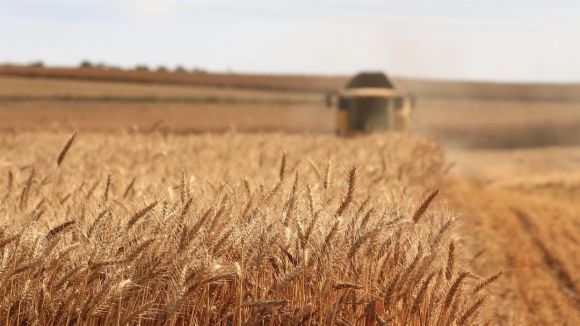Crop diseases can have devastating effects on agricultural production, leading to significant yield losses and economic hardship for farmers. Traditional methods of disease control, such as chemical pesticides, have proven to be effective but can pose risks to the environment and human health. In recent years, there has been a growing interest in innovative techniques that offer sustainable and eco-friendly alternatives for managing crop diseases. In this article, we will explore some of these innovative techniques that farmers can adopt to control crop diseases effectively.
Crop Rotation: A Natural Defense
Crop rotation is a centuries-old practice that involves growing different crops in sequential seasons on the same piece of land. This technique can help break the disease cycle by interrupting the life cycle of pathogens that rely on specific host plants. By rotating crops, farmers can prevent the buildup of disease-causing organisms in the soil, reducing the need for chemical interventions. Additionally, crop rotation can improve soil health and fertility, leading to overall better crop growth and resilience against diseases.
Biological Control: Nature’s Allies
Biological control involves the use of natural enemies, such as beneficial insects or microorganisms, to suppress the population of pests or pathogens. One example of biological control is the use of predatory insects, like ladybugs, to control aphid populations. These beneficial insects feed on the pests, reducing their numbers and preventing damage to crops. Similarly, the application of certain strains of bacteria or fungi can help suppress the growth of disease-causing organisms. Biological control methods offer an environmentally friendly approach to crop disease management without the need for harmful chemicals.
Precision Agriculture: Targeted Solutions
Advancements in technology have revolutionized the way farmers manage their crops. Precision agriculture techniques, such as remote sensing and GPS mapping, enable farmers to identify areas of the field that are prone to disease outbreaks. By using this information, farmers can apply treatments only where necessary, reducing the overall use of pesticides and minimizing environmental impacts. Additionally, precision agriculture allows for timely interventions, ensuring that diseases are detected and controlled before they spread extensively.
Genetic Resistance: Building Stronger Crops
Breeding crop varieties with genetic resistance to specific diseases is a long-term and sustainable approach to disease control. By selecting and breeding plants that have natural resistance to pathogens, farmers can reduce their reliance on chemical pesticides. Genetic resistance can be achieved through traditional breeding methods or through modern biotechnology techniques, such as genetic modification. Plant scientists are continuously working to develop crop varieties that are resistant to a wide range of diseases, offering farmers more options for sustainable disease management.
Integrated Pest Management: A Holistic Approach
Integrated Pest Management (IPM) is an approach that combines various disease control strategies to manage pests and diseases effectively. IPM emphasizes the use of multiple complementary techniques, such as cultural practices, biological control, and judicious use of pesticides. By integrating different methods, farmers can reduce the reliance on a single control measure, which can lead to the development of resistant pest or pathogen populations. IPM promotes a holistic approach to disease management, considering the ecological, economic, and social aspects of agricultural systems.
In conclusion, innovative techniques for controlling crop diseases offer sustainable alternatives to traditional methods. By adopting these techniques, farmers can reduce their reliance on chemical pesticides, minimize environmental impacts, and build resilient agricultural systems. Crop rotation, biological control, precision agriculture, genetic resistance, and integrated pest management are just a few examples of the innovative techniques available to farmers. As the global population continues to grow, it becomes increasingly important to prioritize sustainable and eco-friendly approaches to ensure food security for future generations.
